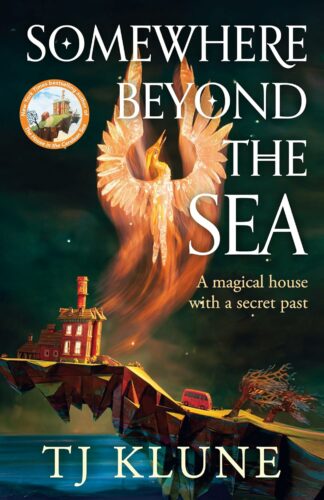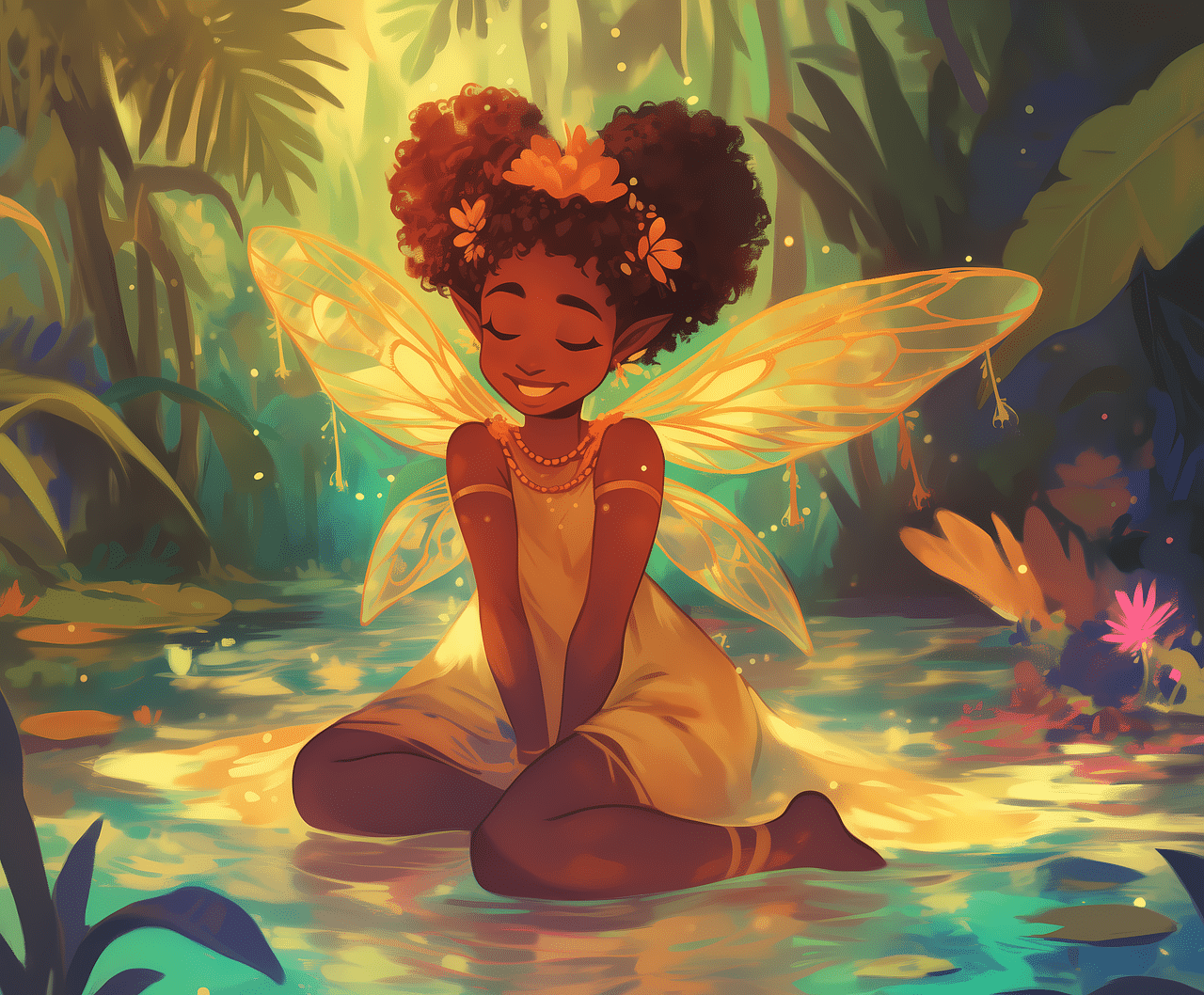A Forced Sequel
Author: TJ Klune
As the sequel to The House in the Cerulean Sea, I don’t think much backdrop is needed for Somewhere Beyond the Sea. If you haven’t read the first book, then this sequel will have you instantly lost anyway, so go back to the beginning, see how it all began, and then return here.
We left House in the Cerulean Sea with Linus having left his job at the Department in Charge of Magical Youth (DICMY). The rule follower, having broken free of his grey, rainy city life, followed his heart, and gave it to one Arthur Parnassus, master of a very special orphanage filled with six extraordinary magical children, including the Antichrist. When we left them, Linus and Arthur were happily living together and petitioning to adopt their charges. But, of course, they knew that trouble was on the horizon. In a world of prejudice against magical people, it wouldn’t be long before the government was again after their island, breaking apart their serendipitous life.
And that’s where we pick up here in Somewhere Beyond the Sea. The peace has been shattered and Arthur has been called before a tribunal to determine if he remains a fit master of the orphanage. On this tribunal, he meets a new political wanna-be, a woman who is willing to do anything and hurt anyone to make it to the top. She’s the acting head of DICMY now; she has her eyes on the prize too – the Antichrist. As the stakes increase, a new inspector comes to the island and a scheme is hatched to destroy the peaceful found family. “See something, say something,” the non-magical community ominously echoes, as Arthur and Linus find themselves at the breaking point, facing bigotry and outright governmental threats. The storm they knew was coming has landed, and nothing will ever be the same.
While this isn’t usually my type of read, the goofy, heartwarming nature of the first book, despite the barely veiled anti-religious sentiment, was captivating. I believed in the characters – from the blobby Chauncy (my personal favorite) to the wyvern and his hoard of buttons, to the ephemeral island sprites, to the (even more fantastical) redemption of a governmental employee. The story, for all the issues Klune was pinpointing and expostulating, had an organic nature, and the people and magical creatures felt real and vital. Somewhere Beyond the Sea, however, destroys that magic, falling into the “trying too hard” school of most sequels. Very few things work here, and nothing is organic. Too much is going on, the author trying to run down thoughts on major topics, smashing them together, while trying at the same time to force the comedy. It ruins the magic.
In the review ahead, there will be spoilers, so if you want to read this book, stop here.
What Worked
Audible Narrator
Daniel Henning could read my grocery list and yet still enchant me. Whatever they are paying this man, it’s not enough. Pay him more. Somehow, he manages to create unique, believable voices for each character. I could just tell who was speaking without being told. And the man has emotion and a sense of story. Please do every Audible book ever for the rest of time Mr. Henning.
The Artwork
Do I really have to say more? The covers of Klune’s books are amazing. I just want to stare at the picture, mesmerized.
Linus and Arthur Tie the Knot
In the first book, we leave the lovebirds starting a promising relationship. But it’s really not enough. We want them to get married. Not to say that this gets much page space, and the wedding is kind of tedious, but still. We get closure. We get the complete happily-ever-after.
Sal Gets a Voice
The character of Sal, so shy in the first book, really comes into his own here. Sadly, it’s just glimpses, but they do give good vibes. It’s good to see this character we came to know and care about growing, both in confidence and compassion. He emerges as a leader among the children, and this, unlike most of the rest of the book, feels organic and earned.
Muuuudddd
Lucy creates mud-people here, and they are hilarious. It’s a brief moment, but it’s charming and Henning gets the British upper crust voice of the most sentient mud man just perfect. Excellent.
What Failed
Let’s Hit Every Issue, Ever
Now, this series has never been shy about discussing big button issues. We expect that. It’s evident that the magical people are representative of any group that has been marginalized and targeted by systemic bigotry. We expect to see that issue more examined here. What we don’t expect is 1,000 other equally big issues thrown, all pell-mell, into the narrative without thought or structure. It bounces around everywhere. It’s too much, too disorganized. It has an “oh, and another thing!” feel that serves to weaken the entire focus and makes the characters into ideologs instead of the lovable people we knew. In the end, it’s a lecture, not a story with a heart.
What issues, you ask? Well, good gosh, do you have all day? We get (in no particular order): child abuse, trauma, racism, homophobia, hatred of transgender people, systemic abuse (enacted via law and socially acceptable standards), bigotry from religious persons (see more in next section), oppression, politics, identity, pronouns, equality, sexism, social justice, resistance, oppression, genocide (the fairies), savior complexes, and a really odd focus on syrup. That last one may not have been an issue, just the idea of eating three bottles of syrupy weirded/grossed me out. The point is, if it’s a big-ticket issue, it was somehow smashed into these pages, whether or not it fit what was happening in the story. I was waiting for Klune to add abortion too, as I think it is the only major current issue that he missed, because you sort of get an oblique reference to immigration at the end. But hey, maybe in the next book.
Also, is it just more or is the new villain giving Delores Umbridge vibes? She’s too static, too cartoon villain-ish to be frightening.
Christian Bashing
Now, the author obviously felt some-type of way when he put pen to paper. The epilogue, with its weird tangent against JK Rowling (what does he have to do with this book?) makes it evident that passion was behind the writing. Unfortunately, as previously mentioned, that passion is not focused on the issues that are most relevant to the story. You just can’t throw everything you’ve ever thought into one book. But . . . but the author did . . . and apparently, he has some issues with Christians. Now, this appeared in the first book some too; I guess having the Antichrist as one of your good-guy characters is a clue to that. But this time Klune goes out of his way to deliberately bash Christians, and seemingly with no provocation (there are no Christian characters). For example, Linus randomly remarks that he will remove all Bibles from the island because there is some rough stuff in the Bible, and he doesn’t want his liberated kids reading some of the more gruesome stories. Which . . . is really weird considering that he thinks his children’s threats of murder and dismemberment are cute.
Likewise, Lucy goes off on a tangent at the wedding about how religious people are all charlatans. Just, what?? Why?? We also get more tangents about how Christians are despicable because of the Eucharist – i.e. eating Christ’s body and blood. None of this has anything to do with the story. It’s just more angry remarks from the author that take us out of the story and make those Christian readers feel both militant and combative. Come on dude. I thought the entire point of your story was to dimmish hate in the world, not just redirect it to the people you don’t tolerate. Ironic, no?
The Yeti
As if enough isn’t going on, we get another new character. This new character is a child called David. David is an annoying Yeti who absolutely never, ever shuts up. And we really, really want him to. He’s into theater, and we spend endless sequences watching him create, direct, and act in his own productions. It soon stops being cute and becomes annoying. Enough. Can we get back to the characters we care about? Can we get this new kid to shut up? We get it – the children have terrible pasts. And so . . . we want to get back to the children with whom we bonded in the first book. Instead, they’re pushed to the side (except Sal), and all the focus goes on this brand-new character. Just no. We didn’t need that. We had enough characters. How about we see what happens to them? -_-
Forced Comedy
To lighten the mood, because everything serious is included in here, the author tries to up the comedy. While it was natural and cozy and cheerful in the first book, here it is entirely too forced. For example, David’s endless play routines. The repeated threats of death and dismemberment from the children – which honestly didn’t work in the first book. The frankly stupid attacks against the unnecessarily villainous government case worker (including a spell that leaves her with a handlebar mustache). It’s all so one-dimensional. So trite. Sigh.
Where Has All The Logic Gone
Ok, ok, I know. This is literally a story about a gay Phoenix who lives on a magical island with magical children . . . but the world did have structure. It made sense, and that’s what made the children’s position precarious. That’s what made us marvel and wonder and also worry about and for our characters. But here, the world build shifts based on the needs of the plot. It destroys what was left of the sense of story. Here are a few big examples, but the story is peppered with them.
1) We start with the public trial, where Arthur interrupts and tells off the doddering representatives with aplomb. Sorry, but real formal legal proceedings don’t work like that. He’d have been arrested under contempt of court in two seconds.
2) When the inspector comes, Arthur and Linus encourage the children’s aggression, taunting, and shenanigans. How is that a plan? Isn’t that the dumbest possible thing to do? Like . . . you know, when the stupid Yeti decides to chase a human while roaring right in front of the stuffy government inspector, and then everyone gets surprised when it turns pear shaped. Like . . .what did you think would happen? Where is everyone’s brain? Isn’t Arthur clever?
3) In the first book, the town on Marsyas is a prejudiced hub where the kids aren’t allowed. It is not even one year later, and now it is a haven – an open spot for magical families that is filed with paradisial love and acceptance. In A YEAR. Because, sure it is. Even Melvin, the cranky ferryman, is a good guy now, as is the errant Christian who tried to exorcise Lucy in the first book. Because change apparently happens overnight because a few kids visited town a few times.
4) In the end, there is a showdown between the evil, super villainous government and suddenly, randomly super powerful Zoe (that was left field) and the media portrays everything kindly, without sensation, and the entire world changes their mind and sides with the magical people. Because . . . sure. Sure, life totally works like that. Come on Klune, you know change and defeating prejudice is harder than that. It takes a lot more than one feel-good media story.
All in all, Somewhere Beyond the Sea was a disappointment. There were other elements that were also unsatisfactory (enough of the “nightly emissions” jokes with Chauncy, who can now ink), but I covered all the big things. While I loved every moment of the first book and didn’t want to stop reading or leave the island, I kept wishing this story would just end. It destroyed the characters and the magic for me, and while I was able to try and ignore the Christian hate in the first book, every time I rested here the author snuck it back in through the voice of a character. Not recommended.
– Frances Carden
Follow my reviews on Twitter at: https://twitter.com/xombie_mistress
Follow my reviews on Facebook at: https://www.facebook.com/FrancesReviews
- Book Vs Movie: The Shining - April 6, 2020
- Thankful For Great Cozy Mysteries - December 13, 2019
- Cozy Mysteries for a Perfect Fall - October 20, 2019





